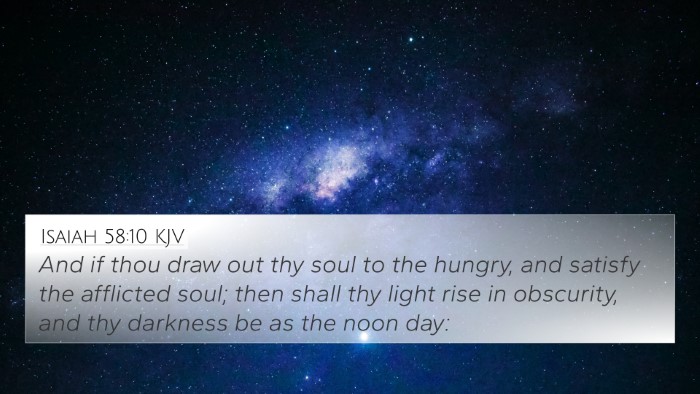Understanding Psalms 125:4
Psalms 125:4 states, "Do good, O LORD, to those who are good, and to those who are upright in their hearts." This verse emphasizes the Lord's commitment to reward the righteous and those who uphold integrity. The underlying meaning is derived from the assurance that God's providence watches over those who live a life of faithfulness.
Commentary Insights
Matthew Henry: In his commentary, Matthew Henry notes that this verse serves as a comforting reminder of God’s justice and benevolence. He emphasizes the deep trust of the faithful, who find security in God's protective nature. This implies that the rewards, both in this life and the next, are prepared for the faithful, reinforcing the message of divine justice.
Albert Barnes: Barnes interprets this verse as a prayer for the divine blessing, both highlighting the distinction between the good and the evil. He observes that God's goodness is specific to those who are morally upright and have committed their hearts to Him. According to Barnes, this illustrates God's nature as one who rewards righteousness while also purifying or punishing wickedness.
Adam Clarke: Clarke expands on this verse by discussing the implications for community and individual morality. He notes that the phrase 'those who are upright in their hearts' indicates that true goodness stems from the intentions of the heart and not merely from outward actions. Clarke draws attention to how God sees beyond actions into the hearts of men.
Theme and Context
This verse is part of a psalm that reflects the security believers find in trust and faith in God's providence. It can be likened to various other scripture passages that discuss God's protection over His people, serving as strong points of cross-referencing.
Related Bible Cross-References
- Psalm 37:28 - "For the LORD loves the just and will not forsake his faithful ones."
- Proverbs 2:7 - "He holds success in store for the upright, he is a shield to those whose walk is blameless."
- Matthew 5:8 - "Blessed are the pure in heart, for they will see God."
- Galatians 6:9 - "Let us not become weary in doing good, for at the proper time we will reap a harvest if we do not give up."
- Romans 2:6 - "God "will repay each person according to what they have done."
- Isaiah 3:10 - "Tell the righteous it will be well with them, for they will enjoy the fruit of their deeds."
- James 1:12 - "Blessed is the one who perseveres under trial because, having stood the test, that person will receive the crown of life that the Lord has promised to those who love him."
- 1 Peter 3:12 - "For the eyes of the Lord are on the righteous and his ears are attentive to their prayer."
- Psalm 34:15 - "The eyes of the LORD are on the righteous, and his ears are attentive to their cry."
Connections Between Bible Verses
The rich intertextuality present in Scripture invites exploration into how verses can be linked thematically and contextually. For example, the assurance that God watches over the righteous found in Psalms 125:4 resonates with the themes of divine justice and guidance illustrated throughout the Psalms and the New Testament.
Thematic Links and Comparative Analysis
To deepen understanding, we can conduct a comparative Bible verse analysis. This involves examining verses that discuss righteousness and God's favor, alongside their implications in the life of a believer:
-
Righteousness: Not only do Psalms 125:4 and Matthew 5:8 affirm the state of the upright, but they also highlight the coming rewards for those who maintain such integrity.
-
Divine Providence: Psalm 37:28 and 1 Peter 3:12 assure the reader that God’s attention is focused on the righteous. This theme indicates that believers can trust in God's oversight.
-
Endurance in Good Works: Galatians 6:9 and James 1:12 encourage persistence in doing good, resonating with the ‘upright’ theme in Psalms 125:4, propelling believers to continue their righteous journey with reassurance of eventual reward.
Conclusion
In contemplating Psalms 125:4, we gain insight into God's relationship with the righteous and an affirmation of His justice in our lives. The connections between this verse and others emphasize a consistent theme of divine faithfulness to the upright. By utilizing tools for Bible cross-referencing, one can enrich their study of scripture, uncovering deeper meanings and interconnections.


















